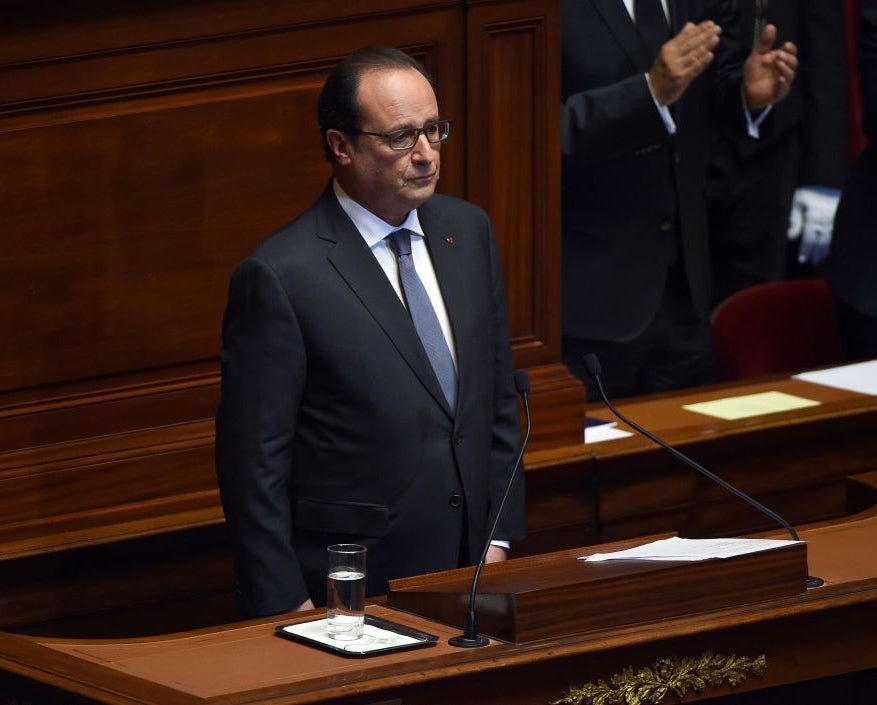Europe must change and do better, but it need not fall apart
After the Paris attacks, there is a huge security challenge for Europe, but there is arguably an even bigger economic one


Europe has to do better. Of course it has to do better in containing the terrorist threat, and that will mean some aspects of the freedoms that Europeans rightly hold dear must be curtailed. But crucially it has to do better in economic performance, for it has to be able to give the millions of young people who are unemployed or underemployed – including those of immigrant families – better life opportunities.
There is a huge security challenge, but there is arguably an even bigger economic one. At the core of both is the question: what, deep down, do Europeans want their continent to be?
You have to pose that question because the attacks in Paris, coupled with the refugee crisis, force Europe to confront two difficult truths. Two key agreements designed to pull Europe together – the Schengen Agreement and the euro – have had the effect of pushing it apart. Britain is in neither, so our voice is disregarded, but it is not just Britons who question the wisdom of allowing free passage of people across European national borders, or of imposing deep austerity on much of the Continent.
Schengen was signed in 1985 by five of the then 10 members of what was then the European Economic Community, and when no one envisaged that the Berlin Wall would come down. This is a 30-year-old design. As for the creation of the euro, that goes back to the plan for Economic and Monetary Union in 1990 and the Maastricht Treaty of 1992. It is a 25-year-old design. The politicians then could not have envisaged the cross-border tensions Europe would face today – or, indeed, that the eurozone would have double the unemployment rate of the rest of the developed world.
So what’s to be done? It always takes time before the full implications of some dreadful event can be sensibly gauged. Sadly, the political response to such an event is often misguided. Not many people would now support the invasion of Iraq. But while politicians have to respond strongly to outrage, some of their immediate reactions to the Paris bombings do seem off-key.
Start with Schengen. There will clearly have to be some limit on borderless travel, though it is not yet clear whether the French will demand complete suspension of the agreement. Yes, two of the cars used in the Paris attacks were hired in Brussels, but the apocalyptic vision of President Hollande, while understandable, is surely wrong. “If Europe doesn’t control its external borders,” he said on Monday, “it is the return of national borders of walls and barbed wire as we’ve seen today. This would mean the dismantling of the EU.”
That cannot be right. Europe is not going to be dismantled. It operated very successfully until 1985, and the fact that the UK and Ireland are outside Schengen does not cut them off. Showing a passport is a minor inconvenience, but less so than having to stop for tolls on French motorways. In any case, there would not need to be full reinstatement of national borders, merely a rather greater degree of control than operates now.
The notion that, without Schengen, Europe would collapse mirrors a now famous comment from Angela Merkel, the German Chancellor, about the euro. “If the euro fails, Europe fails,” she said four years ago at the height of the eurozone crisis, “and if Europe fails, we all fail.” So far, Germany and the European Central Bank have between them managed to hold the eurozone together. But the cost has been horrendous.
Unemployment in the eurozone is the lowest since January 2012. It is 10.8 per cent. Not only is that is double the UK rate of 5.4 per cent, but it is higher than the UK at any stage since 1993. More telling still, some three-quarters of the jobs being created in the UK go to non-nationals, mostly from Europe. It is a cruel irony that hundreds of thousands of young Europeans living in the eurozone have to leave it to get a job. For them, Angela Merkel speaks of an inverse reality.
There is a further and even crueller twist. In much of the eurozone, there are two job markets. There are those, mostly older people, in protected jobs with high security and excellent pensions and other benefits. And then there are temporary workers, with few benefits and little or no security. In Germany, these have been dubbed “mini-jobs”, literally “marginal employment” or geringfügige Beschäftigung. Some seven million jobs are in this category.
But at least young people in Germany have the option of some employment. That really is not open to many of their counterparts in Italy, Spain or France. Young immigrants fare worst of all. Much has been made of the social exclusion of the children of immigrant families living in housing projects in the suburbs around Paris, but the economic exclusion is equally corrosive. You can live five miles from one of the world’s most glittering capitals, and not be part of it.
We fret, understandably, about the slow recovery of living standards in the UK, but we are at least above the 2007 peak. The eurozone as a whole is still below that level – in some countries well below it. The European Commission has warned that by 2023 EU living standards may be back to 60 per cent of US levels, where they were in the mid-1960s. If that were true, the EU would indeed have failed.
There lies the challenge. Economic success would not eliminate terrorism. But a combination of stronger border controls and a less rigid economic environment would offer its citizens a more optimistic future. The great prize is a closer union among the peoples of Europe, including Britons, but also Russians, who are Europeans too.
If these dreadful events provoke us to be more honest about Europe’s failed narrow vision, maybe we can together build a better broader one.



Join our commenting forum
Join thought-provoking conversations, follow other Independent readers and see their replies